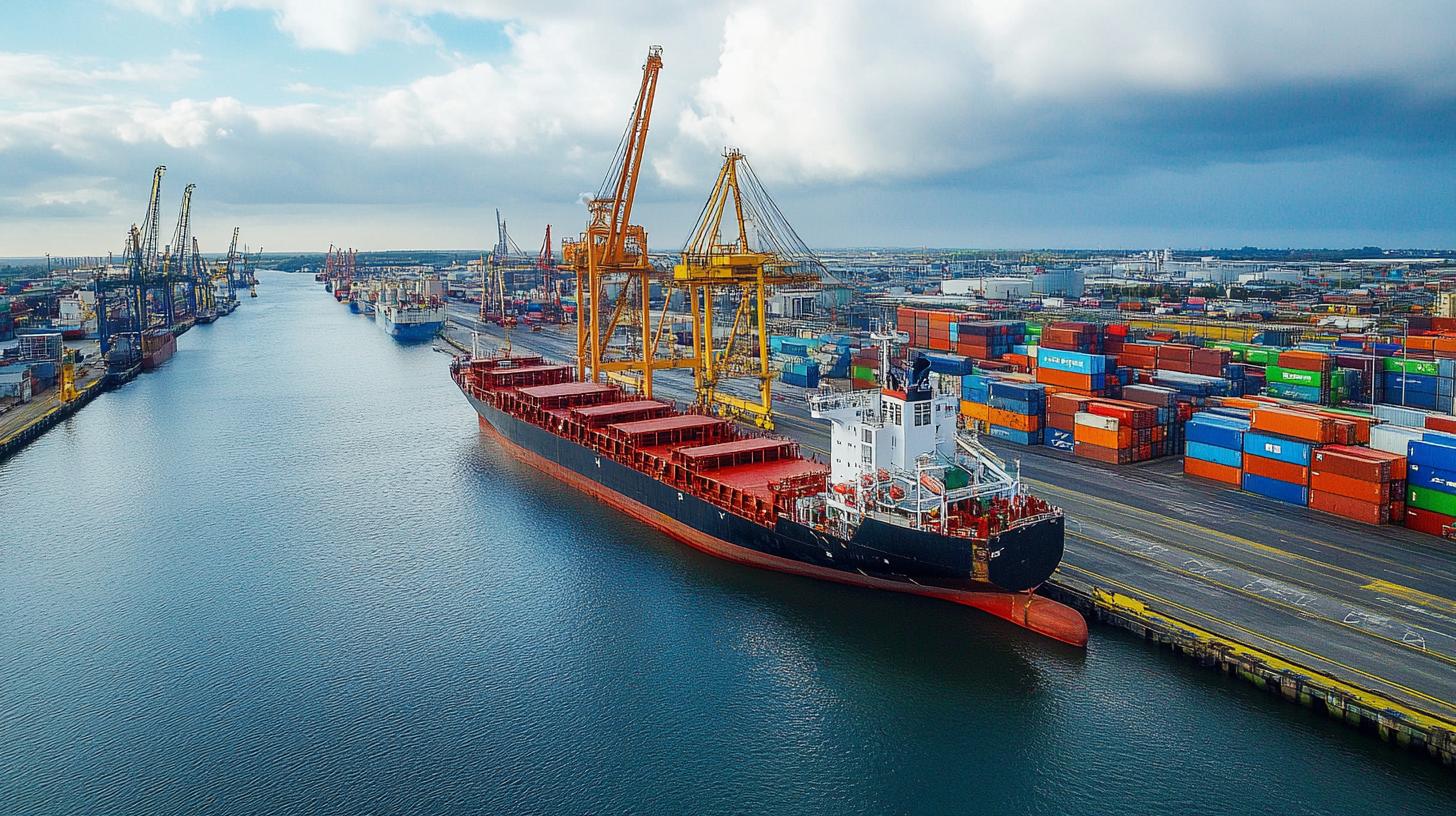The Port of Klaipeda in Lithuania is embarking on a groundbreaking green hydrogen project, securing a substantial $11.4 million investment to develop a production and refueling station, a first for the Baltic States.
Klaipeda, aiming to become a frontrunner in green technologies within the Baltic region, has selected MT Group for the project execution. The construction phase is anticipated to commence next year.
Green hydrogen will be generated using an advanced electrolysis process facilitated by a polymer electrolyte membrane (PEM) electrolyzer. MT Group, recognized for its expertise in European critical energy and industrial projects, will spearhead the station’s design, provision, installation, and commissioning. Additionally, they will manage project oversight, construction activities, and provide a warranty service for the facility for two years.
The station will require an electricity input of up to 3 MW to produce its target output of 500 kilograms of hydrogen daily, equating to around 127 tons per year. This hydrogen will be stored at high pressures of 550 and 1000 bar to ensure a steady supply.
The station’s hydrogen will initially support port operations, as well as rail and road systems, with future plans to supply eco-friendly fuel for commercial ships. This initiative comes after an environmental assessment, aligning with global practices of positioning hydrogen facilities near residential zones.
Klaipeda holds a significant 37 percent share of the Baltic port market. Furthermore, it is directing $13 million towards constructing Lithuania’s pioneering hydrogen-electric ship, aimed at efficient waste management. This 42-meter vessel, being developed by Western Baltija Shipbuilding, will handle 400 cubic meters of liquid waste, propelled by batteries and a hydrogen fuel cell system.
Impact of Green Hydrogen Projects on Global Communities and Economies
The advent of green hydrogen technologies, such as the project in Klaipeda, Lithuania, represents a pivotal shift in energy landscapes, offering potential benefits and challenges to individuals, communities, and entire nations. As countries strive to meet ambitious climate targets, green hydrogen emerges as a crucial component of sustainable energy strategies, promising a decarbonized future.
The Promise of Green Hydrogen
Green hydrogen, produced via electrolysis powered by renewable energy sources, provides a clean energy alternative that can significantly reduce carbon emissions. For local communities and urban centers, this translates to improved air quality and reduced greenhouse gas emissions, mitigating climate change impacts. In Klaipeda, the production facility will initially fuel port operations and eventually supply eco-friendly energy for transportation systems and commercial ships, representing a model that countries worldwide could emulate.
Moreover, the integration of green hydrogen into power grids can stabilize energy supply, reduce dependency on fossil fuels, and buffer volatility in energy prices. It also supports energy storage, addressing one of the significant challenges of renewable energy—intermittency.
Economic and Job Opportunities
The establishment of green hydrogen facilities creates dynamic job markets, fostering employment in engineering, construction, and maintenance sectors. In Lithuania, the Klaipeda project has positioned itself as a leader in innovation within the Baltic region, setting a precedent for economic growth driven by green energy investments.
Nations investing in hydrogen infrastructure can also experience boosted competitiveness in the global market, potentially leading to export opportunities for hydrogen and related technologies. For instance, green hydrogen could revolutionize industries ranging from transportation to heavy manufacturing, potentially even impacting global trade balances in favor of countries that spearhead hydrogen technologies.
Controversies and Challenges
Despite its potential, the adoption of green hydrogen is not without controversy. The high initial investment costs and technological complexities represent significant barriers to entry. Projects such as Klaipeda’s, with an investment exceeding $11 million, require substantial funding and political will, which might be unattainable for smaller economies.
Furthermore, concerns about the ecological footprint of such projects arise, particularly involving the land and water required for hydrogen production. Critics also point to the energy efficiency of hydrogen, arguing that direct electrification (using electricity directly without converting it to hydrogen) might be more efficient in many cases.
Future Outlook
Looking ahead, countries embracing green hydrogen technology could lead the charge in global sustainability efforts. As more nations join this environmental initiative, international collaboration and innovation will be critical in addressing technical and economic challenges.
Ultimately, the challenge will be balancing the eager adoption of clean technologies with genuine considerations for the socioeconomic effects on communities and economies. As the global energy sector undergoes this transformation, comprehensive planning and policy-making are crucial to ensure inclusive and equitable benefits for all involved.
For further exploration of global renewable energy initiatives, interested readers can visit reliable sources like the International Energy Agency and United Nations Sustainable Development Goals.


